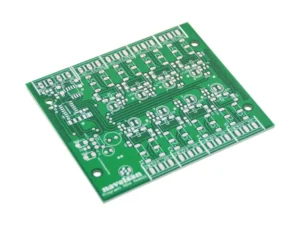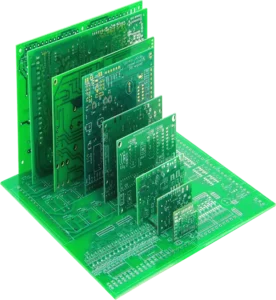PCB thickness plays a critical role in electronic design. When designing a PCB, you must focus on its performance. When you think of performance, you must pay attention to the heat dissipation system. PCB thickness greatly affects these two factors and eventually increases the durability. However, this article, “1.2mm vs. 1.6mm PCB,” will compare and find the best choice.

1.2mm vs 1.6mm PCB: Which PCB thickness is better?
Choosing between 1.2mm and 1.6mm PCBs is not tricky. You just need to check your project’s needs. Then, you can go over their properties consecutively and judge whether 1.2mm or 1.66mm would be better for your project.
Strength
You will find it thicker and stronger when you compare a 1.6mm PCB with a 1.2mm PCB. As you know, the thicker the PCB, the more it can endure stress.
On the other hand, a 1.2mm PCB is not that strong and more fragile. So, if your project needs something strong, you better go for 1.6mm PCBs.
Design Compactness
As you know, our world needs smaller devices with more functionality. Therefore, the demand for compact devices is sky-high. Thinner PCBs, in this case, help a lot. A 1.2mm PCB can save a lot of space in your gadget and reduce the overall weight.
On the other hand, 1.6mm PCBs take up more form and add extra weight. So, if the size and weight are the concerns of your project, choose a 1.2mm PCB.
Thermal Managing
When it comes to thermal management, thicker PCBs are the best option. Compared to 1.2mm PCBs, 1.6mm PCBs can indeed better dissipate heat. They can also handle high power loads so that you can ensure a reduced risk of overheating.
On the other hand, a thinner 1.2mm PCB can not dissipate heat, so it may not be a good choice for high-power applications. In such cases, the 1.6mm PCB is more suitable.
Cost
Cost is always a significant factor in PCB selection. A 1.2mm PCB uses less material. It could be cheaper than a 1.6mm PCB if it meets all your project needs. On the other hand, 1.6mm PCBs cost more due to their thicker material.
Is Thinner PCB Better?
A thinner PCB is not always better. It mainly depends on your project. Thinner PCBs, like 1.2mm, are lighter and save space. They might be great for making compact devices. However, they are less durable and can not dissipate heat like 1.6mm PCBs.
Thinner PCBs are also cheap. If you are looking for budget-friendly PCB manufacturing, you can choose thinner PCBs. However, you must know that thinner PCBs can not offer long-lasting service life.
Why are PCBs 1.6mm?
PCBs are commonly 1.6mm thick because that is the industry standard. However, the thickness of a 2-layer PCB ranges from 1.6 to 2.4mm. This thickness offers a good balance between strength, durability, and cost.
1.6 mm PCBs are mostly enough to handle regular stresses. They don’t easily break or bend. These PCBs offer sufficient heat dissipation capabilities for most regular electronic gadgets. Besides, they work well with regular manufacturing processes and equipment.
Contact Us Today!
If you are looking for high-quality PCBs, contact us today. We offer all PCB manufacturing services, from single-layer to multi-layer PCBs. UETPCB also provides custom solutions for new electronic gadgets.

